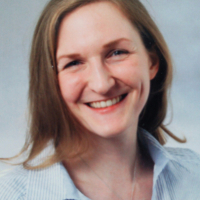
Posted on 25 February 2020.
At the 2017 Global Evidence Summit, Hannah Ewald received the Thomas C Chalmers Award for the best poster presentation, titled 'Agreement of treatment effects from observational studies using causal modeling and randomized trials: meta-epidemiological study'. Here, Hannah reflects on her experience at the 2017 Global Evidence Summit and her journey in academia since.
Becoming a real world methodology influencer
What an adventure! My first visit to South Africa was at the first Global Evidence Summit two years ago (in 2017). Working mainly in the field of research methodology and information science, I was excited about the many opportunities to network and learn from peers with similar mindsets and interests.
As part of my PhD, I studied the agreement between randomized trials and observational studies that used marginal structural models. I put a lot of effort into my preparations for the Summit as I was supposed to present a poster, describe my work and answer questions for half an hour. And indeed, they had so many questions: What did I do? Why did I do it? Why did I do it the way that I did it?
After quite hot discussions – still high on adrenaline and absorbing the multitude of impressions everywhere around – I learnt that I had won the Thomas C. Chalmers Award for the best poster presentation of an early career investigator. I carried my poster like a gold medal and smiled all through the long flight to Switzerland.
Back home, we included the feedback from the presentation at the Summit to finalize our project. We tried to address any important issue that came up. There were many opinions on how things can or should be done, especially regarding the method of analysis and the question which observational studies are "real world" studies. But that's okay, that's how it has always been, hasn't it?
I believe that differences, disagreement and discussion are essential to learn and progress. We tried to maximize transparency and be as frank as possible about what our research can and cannot do – we even concluded with a note of caution!
Half a year later, I finished my PhD - only then I found out what it really means to be "grilled" with questions.
When we published the paper, I was very happy about the success, but also a bit at unease. I had heard stories of avalanche-like negative criticism against researchers and their work in academic settings. Still impressed by my experience at the summit, I wondered about my peers' reactions to the journal publication. What if my work would be misjudged or misinterpreted? Would I need to defend it on social media channels? But I don't really follow social media, so would I have to start doing so and eventually become a full-time "methodology influencer" on Twitter and Co?
I didn't have an answer to these 'life-changing career questions' when finally my phone rang. It was a fellow researcher who had read my paper and didn't agree. My heart stopped. Was this the moment where my research (and probably me) would be hacked to pieces?
Not at all. He kindly offered to explain to me why he disagreed and to discuss a few points. He challenged the validity of our measurements and the appropriateness of our conclusions. We both learnt from each other's perspective and I was glad he called. I always enjoy a good discussion and constructive critique, especially if done in such a respectful way. This is the way to go!
After the call, I still had to ponder those 'life-changing career questions'. Was social media going to be my solution to respectfully influencing methodology? Was that the real world? I needed a state analysis.
For several years, I have been teaching students and practitioners in methodology and critical appraisal. Together with my colleagues from the medical library and the university hospital, I have set up a systematic review service to support students, researchers and medical doctors. We help them with methodological aspects of systematic and other forms of reviews, especially with the systematic search process.
I guess in a way I have already become a bit of a methodology influencer. Just on a much smaller scale and far away from social media.
Hannah Ewald, PhD MPH
Hannah Ewald works as medical information specialist and researcher at the University Medical Library in Basel, Switzerland. She has years of experience in conducting various systematic reviews including methodological reviews, Cochrane reviews and health technology assessments. Hannah has a background in Physiotherapy and Public Health and holds a PhD in Epidemiology.
